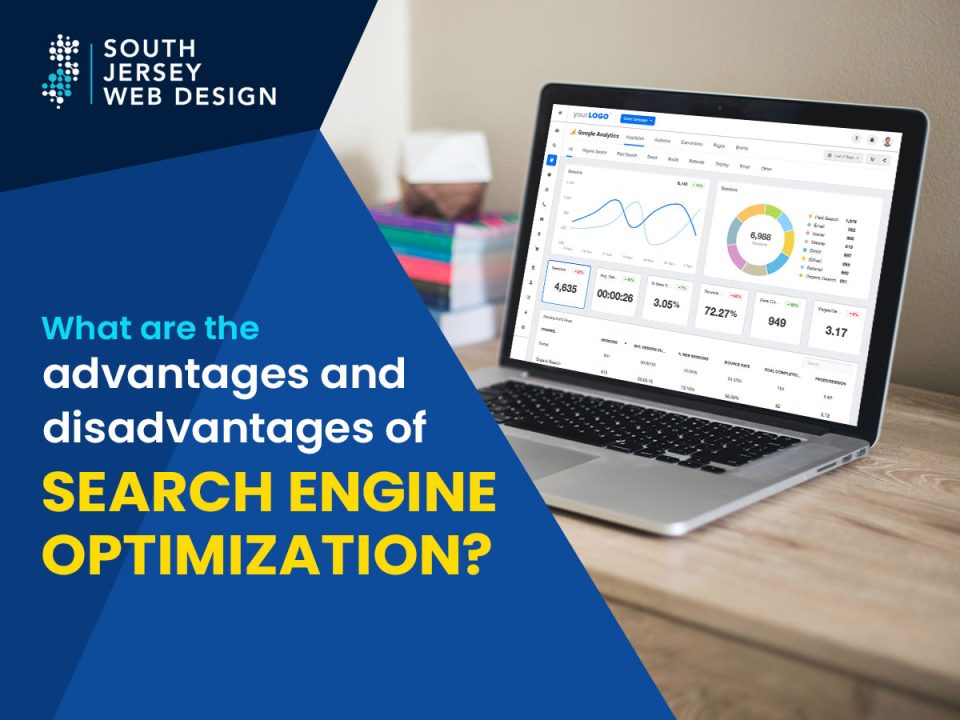The Power of AI in Customer Segmentation and Targeted Marketing for Ecommerce

AI in Web Design and Development: Examining the Pros and Cons for Success
May 31, 2023
JAMSTACK vs Traditional Web Development Which is better?
June 27, 2023Introduction
In today’s digital era, where online shopping has become the norm, businesses are constantly striving to find innovative ways to attract and retain customers. One of the most effective strategies is customer segmentation and targeted marketing, which allows businesses to tailor their marketing efforts to specific groups of customers. With the advent of Artificial Intelligence (AI), this process has been revolutionized, empowering businesses to achieve unparalleled success in their ecommerce endeavors. In this blog, we will explore the power of AI in customer segmentation and targeted marketing and how it can drive growth for ecommerce businesses.
1. Understanding Customer Segmentation
Customer segmentation is the process of dividing a customer base into distinct groups based on their shared characteristics, behaviors, and preferences. By grouping customers into segments, businesses can gain valuable insights into their target audience and create personalized marketing campaigns. AI plays a crucial role in this process by analyzing large volumes of data to identify patterns and segment customers effectively.
2. Leveraging AI for Customer Segmentation
AI algorithms are designed to process and analyze vast amounts of data rapidly. By leveraging AI technologies such as machine learning and data mining, businesses can gain a deeper understanding of their customers. These algorithms can identify hidden patterns, detect correlations, and uncover valuable insights that may not be immediately apparent to human analysts. AI can consider multiple factors simultaneously, including demographics, purchase history, browsing behavior, and social media activity, to create highly accurate customer segments.
3. Personalized Marketing Campaigns
Once customer segments are identified, businesses can create personalized marketing campaigns tailored to the specific needs and preferences of each segment. AI-powered recommendation systems can suggest products or services based on customer behavior, increasing the likelihood of conversions. By analyzing customer data, AI algorithms can predict customer preferences, optimize messaging, and deliver targeted advertisements across various digital channels, enhancing the overall customer experience and driving engagement.
4. Improving Customer Retention and Loyalty
AI-powered customer segmentation not only aids in attracting new customers but also helps in retaining existing ones. By understanding the unique characteristics of each customer segment, businesses can develop strategies to enhance customer satisfaction and loyalty. AI algorithms can predict customer churn and proactively implement retention tactics by sending personalized offers, incentives, or relevant content to prevent customers from leaving.
5. Continuous Learning and Optimization
AI-powered customer segmentation is not a one-time process but rather a continuous learning and optimization journey. As new data becomes available, AI algorithms can adapt and refine the customer segments, ensuring the marketing efforts stay relevant and effective. By continuously analyzing customer feedback, behavior, and market trends, businesses can refine their segmentation strategies, improve targeting, and maximize marketing ROI.
How does AI determine customer segments?
AI determines customer segments by analyzing a wide range of data points and patterns. It starts by collecting data from various sources such as customer profiles, purchase history, browsing behavior, social media interactions, and more. This data is then processed using AI algorithms, including machine learning and data mining techniques. These algorithms can identify similarities, correlations, and trends within the data to group customers into distinct segments based on shared characteristics and behaviors.
What are the benefits of customer segmentation in ecommerce?
Customer segmentation brings several benefits to ecommerce businesses:
1. Enhanced targeting
By understanding the unique needs, preferences, and behaviors of different customer segments, businesses can tailor their marketing efforts and messages to resonate with specific groups, increasing the chances of conversions.
2. Improved customer experience
Personalized marketing campaigns based on customer segmentation can create a more personalized and relevant experience, leading to higher customer satisfaction and loyalty.
3. Higher marketing ROI
By targeting specific customer segments with tailored marketing campaigns, businesses can optimize their marketing spend and resources, ensuring they reach the right audience with the right message, resulting in improved return on investment (ROI).
4. Better product development
Customer segmentation insights can also guide product development efforts by understanding the preferences and pain points of different segments, enabling businesses to create products that align with customer needs.
Can AI improve the accuracy of customer segmentation?
Yes, AI can significantly improve the accuracy of customer segmentation. Traditional segmentation methods often rely on manual analysis, which can be time-consuming and prone to human biases. AI algorithms, on the other hand, can process vast amounts of data quickly and objectively, identifying complex patterns and relationships that humans may overlook. This leads to more precise and accurate customer segments, enabling businesses to target their marketing efforts with greater precision.
How does customer segmentation drive targeted marketing efforts?
Customer segmentation forms the foundation for targeted marketing efforts. Once customer segments are identified, businesses can tailor their marketing strategies, messages, and offers to each segment’s unique characteristics and preferences. This approach allows businesses to deliver highly relevant and personalized content across various marketing channels, such as email, social media, and website advertisements. By delivering targeted marketing campaigns, businesses can capture the attention of specific customer segments, increase engagement, and improve conversion rates.
What are the challenges of implementing AI-based customer segmentation in ecommerce?
Implementing AI-based customer segmentation in ecommerce comes with some challenges:
1. Data quality and integration
AI algorithms require high-quality data from various sources. Ensuring data accuracy, consistency, and integration can be a complex task, especially when dealing with large datasets.
2. Privacy and data protection
Collecting and analyzing customer data raises privacy concerns. Businesses must adhere to data protection regulations and implement robust security measures to safeguard customer information.
3. Skill and resource requirements
Implementing AI-based customer segmentation requires expertise in data analysis, machine learning, and AI technologies. Businesses may need to invest in skilled professionals or collaborate with AI service providers to leverage the technology effectively.
4. Transparency and interpretability
AI algorithms can sometimes be seen as black boxes, making it challenging to understand how they arrive at certain segmentations. Ensuring transparency and interpretability of AI models is crucial to build trust and address potential biases.
Conclusion
The power of AI in customer segmentation and targeted marketing for ecommerce cannot be overstated. By leveraging AI technologies, businesses, including ecommerce development companies in NJ, can gain deep insights into their customer base, deliver personalized marketing campaigns, enhance customer engagement, and drive growth in the highly competitive ecommerce landscape.
As AI continues to evolve, businesses should embrace its potential, while also addressing the challenges associated with its implementation, to unlock the full power of customer segmentation and targeted marketing in ecommerce. By harnessing the benefits of AI-powered customer segmentation, businesses can stay ahead of the competition and create meaningful connections with their customers.




